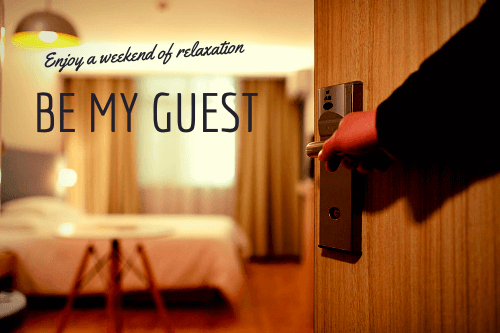
YouTube / iTunes / Spotify / Radio Public / Pocket Casts / Google Podcasts / Breaker / Overcast
Listen to ArtisanEnglish.jp posts & lesson intros here.
English Phrase: Be my guest
Although it may be simple enough, the little phrase be my guest has multiple uses in various situations.
As in the picture, if you want to invite someone to stay the night, you can say be my guest.
It’s a polite little way to say go ahead, knock yourself out or give someone permission to do something.
The holidays are fast approaching, and that means so is the company.
Soon, houses all across the city, town, or country will be hosting guests.
Those visitors will want to watch your TV, use your computer, drink your beer or take a load off by lying on your sofa.
Yes, it will be very inconvenient for you.
However, you will not become angry or annoyed.
You will graciously say, be my guest.
However, as the holidays drag on, as they always do, a little sarcasm will eventually begin to be detectable in your voice.
When one of your guests asks if it’s OK for them to have the last remaining glass of your twenty-five-year-old scotch, you will say be my guest between gritted teeth while silently hoping for them to leave as soon as possible.
At 4:00 in the afternoon, when you feel like having a little snooze on the Chesterfield, but the grandchildren want to play the piano, you will say be my guest while silently thanking God they’re not staying forever.
After sacrificing so much for so long during the holidays and everyone is on their way out the door, you can pat yourself on the back for biting your tongue and not exhibiting your frustration.
Then, as your grown-up child leaves, they will say, ‘Mom and Dad, this was a great holiday. We should come back again next year.’
Without waiting a second, you’ll say be my guest because you just had the time of your life.
Flesch-Kincaid Readability Test
This post is understandable by someone with at least a 7th-grade education (age 12).
On the Flesch-Kincaid reading-ease test, this post scores 71.
The higher the score on a scale of 0 – 100, the easier the passage is to read.

